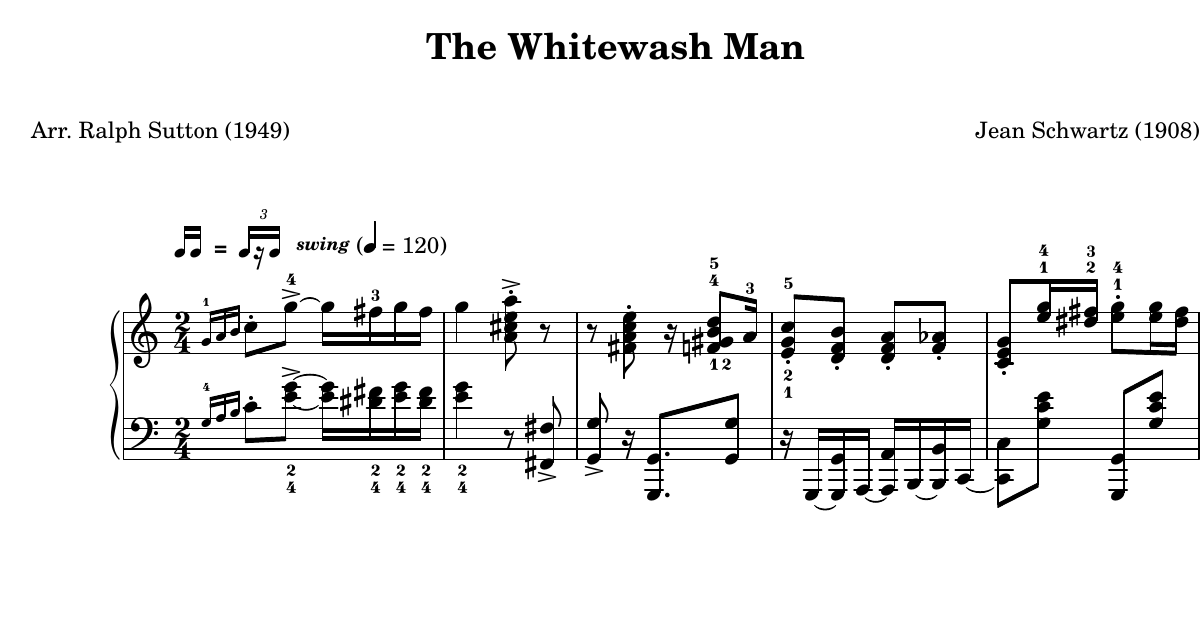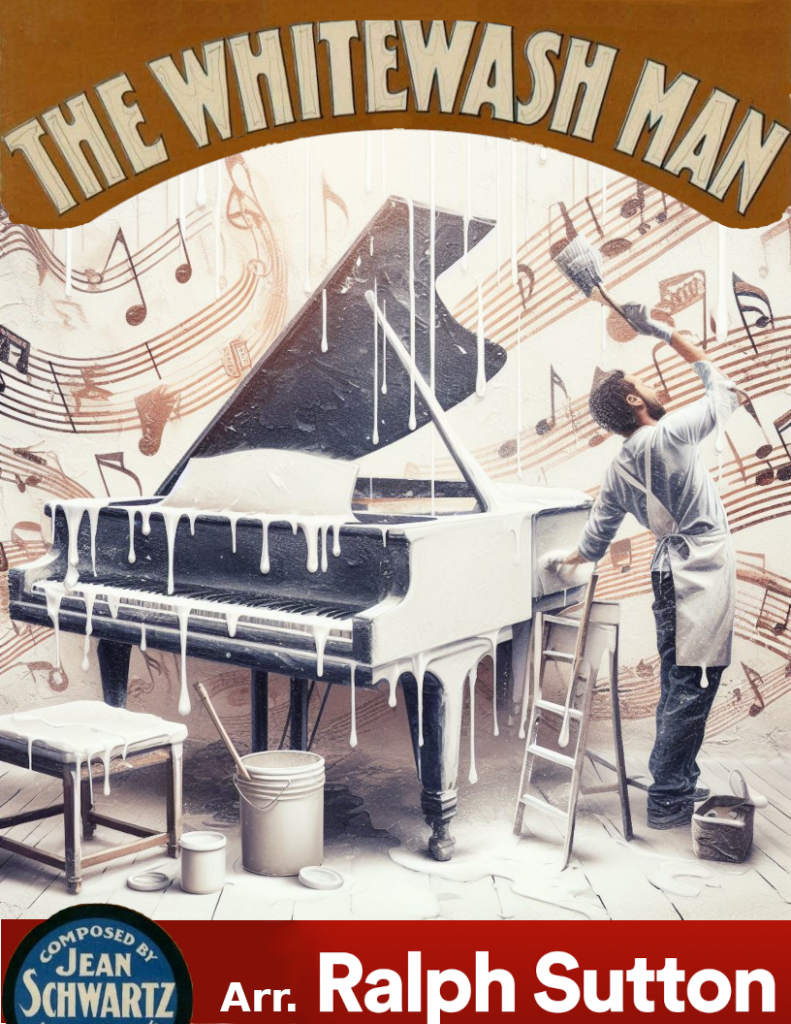
One thing led to another and I discovered Whitewash Man, a 1908 ragtime piece by Jean Schwartz.
First I saw Neville Dickie performing miscellaneous pieces at the 2018 West Coast Ragtime Festival, and subsequently looked him up on YouTube, where I saw his 2009 performance of The Whitewash Man, with Hal Smith accompanying on drums. This is a truly joyful arrangement by Mr. Dickie that is in a higher register than the original with expert embellishments.
Of course I found and downloaded the sheet music, where the only version to be found was the original publication, which is rather simple and dry (although not entirely trivial to play). I played it a lot and kind of customized my rendition, but have since stopped playing it that way in favor of the Sutton version below. Something close to the original can be seen here on a player piano and is not too exciting:
Further research turned up Ralph Sutton’s extremely jubilant performance, which was published on an album called Carolina in the Morning in January 1949. It can be heard below, and I managed to find a high quality FLAC audio file archived from a 78 record. Amazingly there were less than 90 views of this video in the past 5 years. Let’s fix that!
I wanted to be able to play this version, and decided to try transcribing it. I used the Transcribe! software, but soon gave up. The less-than-great audio quality and the complexity of the piece made it too hard to determine which notes were being played.
Around a year later, I ran across the AnthemScore software that claims to convert audio files into sheet music, and gave it a shot. Success! Although the music output by the program is a real mess, it gave innumerable insights into what the music might be, and then working with Transcribe! I was able to interpret and write down what I think is close to what Mr. Sutton played. This took entirely too much time.
Then I spent far too much time learning to play it at speed. I will try to record my (poor) rendition of this at some point. Here is a cover sheet I designed with the help of the Bing/DALLE-3 AI image generator and the GIMP image editor:

Now, the sheet music transcription:
Mr. Sutton’s tempo is an extremely fast 120 to the quarter note (duration 2:50). During the course of detailed analysis at very slow speeds, I never ran across anything that could be definitively be called a “mistake”. If there were any, they were perfectly integrated into the performance and are part of the transcription.